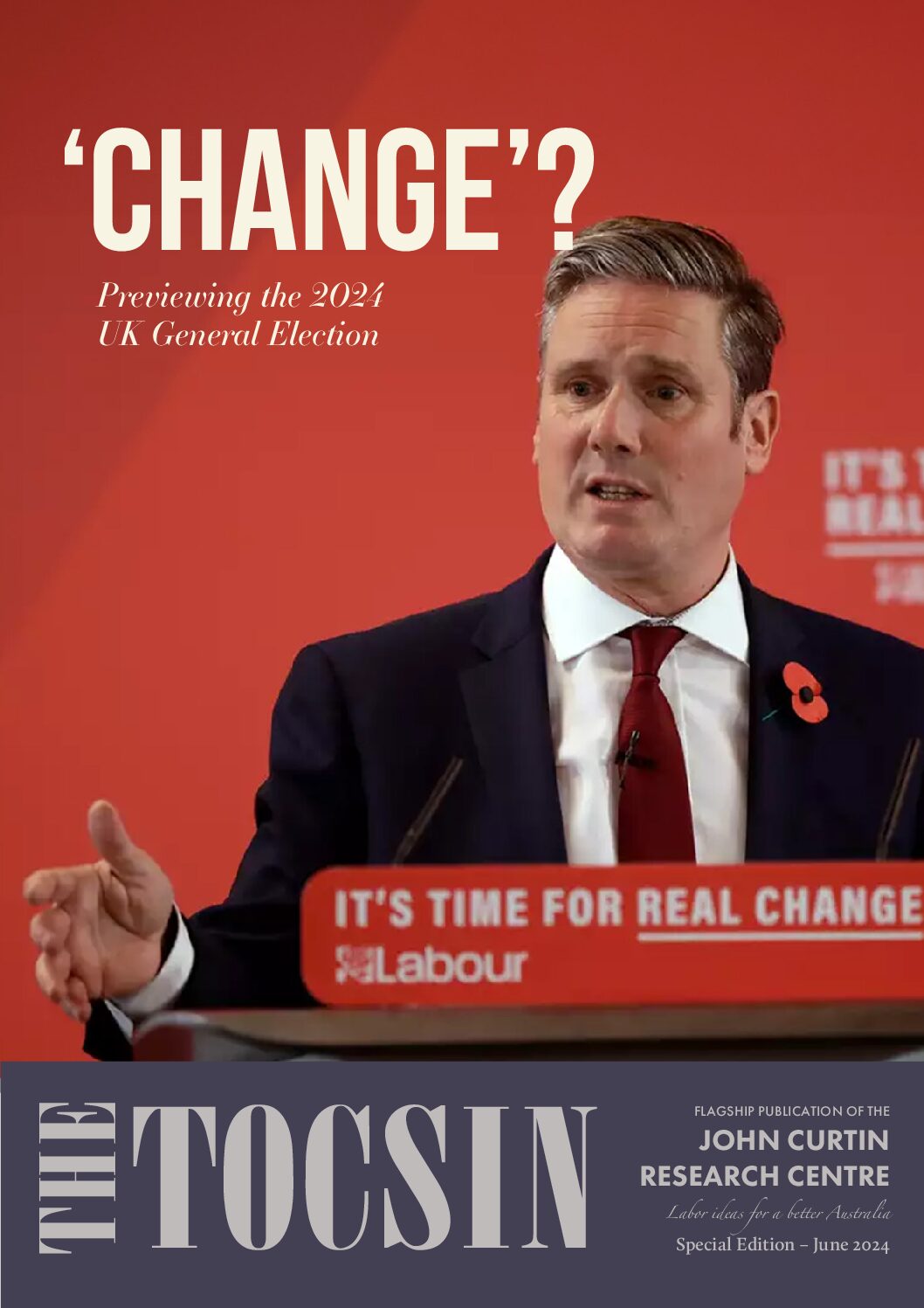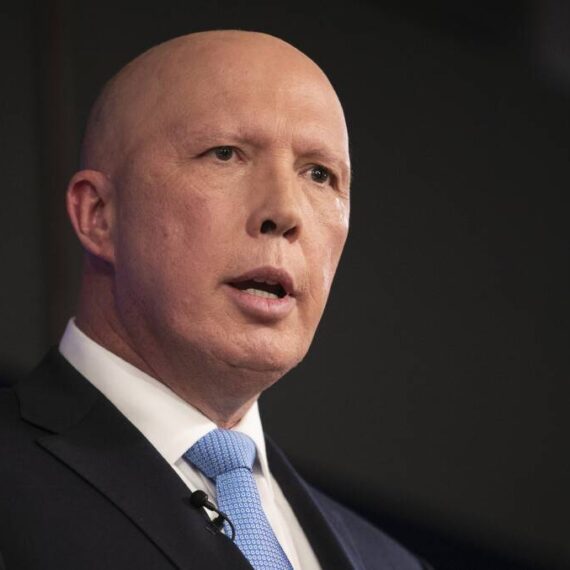The famed Australian historian Manning Clark fancied himself as the nation’s self-appointed fortune-teller, rather than a mere chronicler of the past. As a rule, historians should avoid making predictions about the future. Nonetheless, this column has peered into 2024’s crystal ball to make five predictions about Australian politics in the year ahead.
National security and geopolitical tensions will continue to feature strongly. Israel’s war upon the fascistic Hamas will draw to a close and its profound implications for the region and the West, including our nation, will echo loudly in the corridors of power and on the streets of suburban Australia – where elections are won – for years to come. Ditto Russia’s revanchist war upon Ukraine and the Chinese Communist Party’s bellicosity.
Rising support for left and right-wing populism will grow apace. Australia’s electorate is more fractured and more volatile and less wedded to the major parties, angry at both left and right-wing elites and the institutions that they control – political, economic, and cultural – and looking for alternatives. The Greens will continue to assault Labor’s left flank with its pitch to young people for more drastic action on climate change.
Likewise, we can expect more appeals to “generation rent” and intergenerational inequality more generally.
We can also expect a further drift of non-university educated, working-class younger people – and remember that this is 70 per cent of the adult population – towards the anti-establishment populist right. Most young people are not xenophobic, but they are angry at an economic system which they feel is gamed against them, stuck in a loop of poorer educational outcomes, fewer training and job opportunities, unemployment or precarious employment, and with no hope of becoming homeowners or renting on fair terms.
In Europe, they shocked the continent by throwing in their lot with Geert Wilders’ far-right populist Party for Freedom (PVV) at last month’s Dutch election. The PVV surged to become the largest party among 18- to 34-year-olds. In Argentina, Javier Milei, a far-right libertarian trumpeting culture war issues and radical economic policies won the presidency of South America’s second-largest economy. Almost 70 per cent of young voters backed Milei in the November election. The common denominator was economic insecurity.
Cost-of-living pressures and economic gloom will persist down under. The Albanese Labor government has been hesitant to burn political capital by taking on big economic reforms. We can expect a big-bang policy reset given tightening opinion polls. If not amending the stage three tax cuts, an economic fight led by Treasurer Jim Chalmers will be taken to the opposition. Australians will more closely examine the prospect of a Peter Dutton prime ministership.
The PM is not the one who should be taking the blame.
Which leads us to my final prediction. Hard as it is to believe, the Morrison government’s final term was the first without a leadership change since Howard. With Rudd to Gillard and back, Abbott to Turnbull to Morrison, Australia became the “coup capital” of the world; six prime ministers in eight years making the door of the Lodge spin with dizzying speed.
And one could make a cogent argument – in fact, it was made – that the Liberal Party would have fared better in 2022 had it disposed of Morrison in favour of Josh Frydenberg.
So as the Labor government enters the silly season with falling poll numbers, lower approval ratings for its leader and few obvious levers to pull economically, it’s no surprise that whispers are beginning to be heard about Prime Minister Anthony Albanese’s tenure. They should be ignored.
There are legitimate criticisms of Albanese’s first 19 months in office. The decision to prioritise the Voice debate during a time of sharp economic pain was, in hindsight, a poor use of the government’s political capital. Team Albo was caught flat-footed by the High Court’s ruling on releasing illegal immigrants, including hardened criminals and sex offenders.
The PM, however, is not the one who should be taking the blame. It’s been the prime minister who has been a calming and moderate voice on the Middle East conflict, while other ministers have freelanced or neglected major industrial relations reforms and achievements in their own portfolios to stick their oars into foreign affairs. With the cricket season well underway, Albanese will be looking for better all-round, team orientated Labor performances.
There’s also the transaction cost of a leadership change for the whisperers to consider. The Australian people have a habit of marking down governments who think they can achieve a change of fortune with a change of leader; while Turnbull did see a polling bounce when he took over from Abbott, and Morrison did win in 2019, they ultimately met a sticky end.
Most of Albanese’s ministers previously served in the Rudd-Gillard-Rudd ministries and were traumatised by its leadership ructions. Not so with many of the largely quiescent, greenhorn MPs who graduated from the 2022, 2019 and 2016 classes. If polls worsen – and if Labor’s primary vote dips into the 20s as it did during the Gillard years – they might be tempted to consider a new leader. They must resist this rookie temptation. The frontbench’s wiser heads will likely prevail, especially if the seat of Dunkley is tragically lost.
So, in the midst of the holiday break, Labor people would be wise to stop any leadership chatter. Rather, this new year should see the government give itself the gift of stability. A resurgent prime minister Albanese may just be the best present Labor could wish for in 2024.
See Nick Dyrenfurth’s feature opinion in the Australian Financial Review.
Nick Dyrenfurth is Executive Director of the John Curtin Research Centre.





